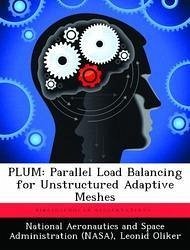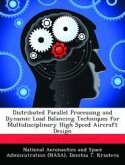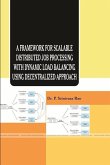Dynamic mesh adaption on unstructured grids is a powerful tool for computing large-scale problems that require grid modifications to efficiently resolve solution features. By locally refining and coarsening the mesh to capture physical phenomena of interest, such procedures make standard computational methods more cost effective. Unfortunately, an efficient parallel implementation of these adaptive methods is rather difficult to achieve, primarily due to the load imbalance created by the dynamically-changing nonuniform grid. This requires significant communication at runtime, leading to idle processors and adversely affecting the total execution time. Nonetheless, it is generally thought that unstructured adaptive- grid techniques will constitute a significant fraction of future high-performance supercomputing. Various dynamic load balancing methods have been reported to date; however, most of them either lack a global view of loads across processors or do not apply their techniques to realistic large-scale applications.
Hinweis: Dieser Artikel kann nur an eine deutsche Lieferadresse ausgeliefert werden.
Hinweis: Dieser Artikel kann nur an eine deutsche Lieferadresse ausgeliefert werden.







